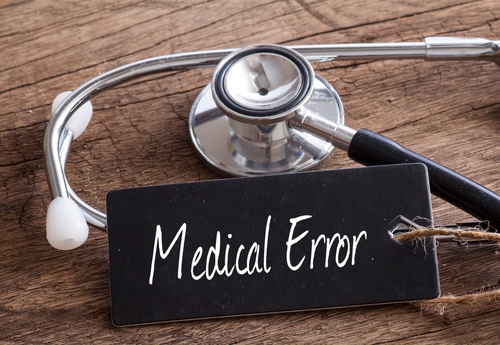Medical Errors in India: A Factsheet
M3 India Newsdesk Oct 16, 2017
Medical errors are defined as one of the greatest problems in the Indian medical system.

According to a Harvard University study, India faces nearly 5.2 million medical errors each year, with many of them going unnoticed or unrecorded. While the Gorakhpur tragedy was an example of a major, systemic failure, errors which are not as dramatic are common across hospitals in India.
- A few years ago, a senior executive of the Confederation of Indian Industries (CII) lost his life during a routine surgery, all because someone inserted an oxygen tube into his brain. For two months, his family fought the hospital administration for just getting them to acknowledge their mistake.
- In one instance, a woman was to undergo tubectomy and lost her bladder instead, while in another instance, a man undergoing chemotherapy died because the medication was wrongly injected into his spine instead of a vein.
- In a highly publicized case in Bhopal, a gynecologist removed a woman’s uninfected ovary and uterus instead of removing the other infected ovary. In court, the doctor was unable to explain why she had done so in court.
- In yet another incidence, a woman was left in a vegetative state after doctors in a Delhi hospital injected five times the amount of sodium safe to be ingested by a human body.
Such stories abound in the wild west of Indian medicine. However, what makes it scary for doctors and patients are some systemic issues that are listed here.
No systematic reporting mechanism
Although the National accreditation board for hospitals collects data from nearly 350 major hospitals across the country, the system is far from perfect, missing out from a lot of large health networks across the country. The Medical Council of India and its state affiliates are supposed to look into and investigate such cases, however, that has not created a useful, workable mechanism. The government and courts too, are yet to come up with a uniform mechanism to address medical errors. This leads to major problems for patients to address such cases, especially when patients do not have adequate knowledge of these problems and how they are to be solved.
Lack of expert panels to judge cases
While consumer forums and courts, and even regular courts to hear these cases, these cases are often argued and fought without adequately examining medical facts and the sequence of events where the cause of death or harm can be concretely determined. No court or panel has the adequate resources to address such issues and they often have to rely on a panel of appointed experts who may or may not have the time and inclination to devote their energies to such cases.
Doctors unwilling to testify
No doctors are willing to testify in cases against their colleagues, especially if they are practicing in nearby or same cities or same institutions. This is mainly because, in most areas, doctors in similar specialties are a close-knit fraternity who do not wish to antagonize each other. Dr. Arun Gadre, a medical activist has often noted such fears among the medical fraternity. Another renowned doctor in Maharashtra, Dr. Himmatrao Bawaskar, also exposed a nexus among doctors, wherein one doctor gets a “commission” on referring a patient to another doctor, a practice against which a law is likely to be promulgated soon. Often due to such hurdles, no doctors have been penalized by the Medical Council of India between 2008 and 2013 according to RTI data obtained from the MCI. All these factors have ensured that negligence and errors are often not proven, and hence no penalty is possible legally.
Preventable errors
A lot of medical errors are preventable, according to Dr. Atul Gawande, an avid endorser of the checklist and other practices to avoid medical errors. He opines that medicine is too complicated a profession to be practiced perfectly by one man such as a doctor and a small team. A lot of errors, such as doctors leaving gauzes, scissors, and forceps, clamps etc. inside the patient after surgery are often because they do not have appropriate mechanisms to account for these objects during surgery. Similarly, doctors and their staff often do not communicate properly and adequately in operation theatres, ICUs, and other emergency situations, where such communication can help them provide cues to each other which some or the rest of them may have missed.
No respite in sight
What victims have recourse to are long, fraught court battles with hospitals and doctors who are much more powerful and well-connected than most victims. Such lopsided court battles where patients cannot conclusively prove negligence and wrongdoing end up being expensive propositions for doctors. Parliament has directed the MCI and state councils to take cognizance of such cases, which, however, has not helped create even a semblance of a useful system to try and solve such cases.
Doctors face long, hard working hours and unmanageable workloads. However, this is not a reason to not create a system where negligence, mistreatment and incorrect treatment instances are recorded, investigated and the necessary penalties and compensations are provided to the aggrieved victims.
-
Exclusive Write-ups & Webinars by KOLs
-
Daily Quiz by specialty
-
Paid Market Research Surveys
-
Case discussions, News & Journals' summaries